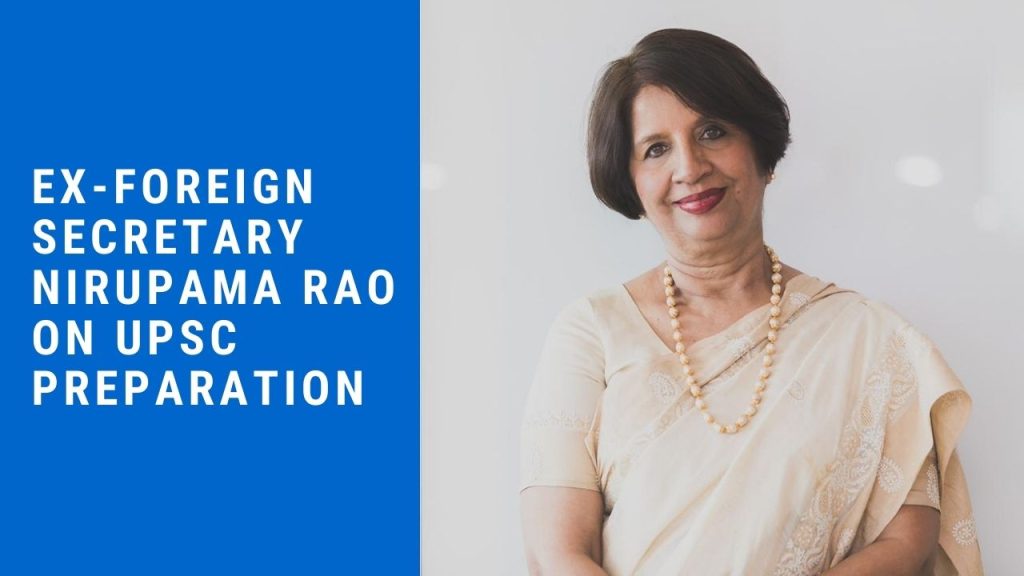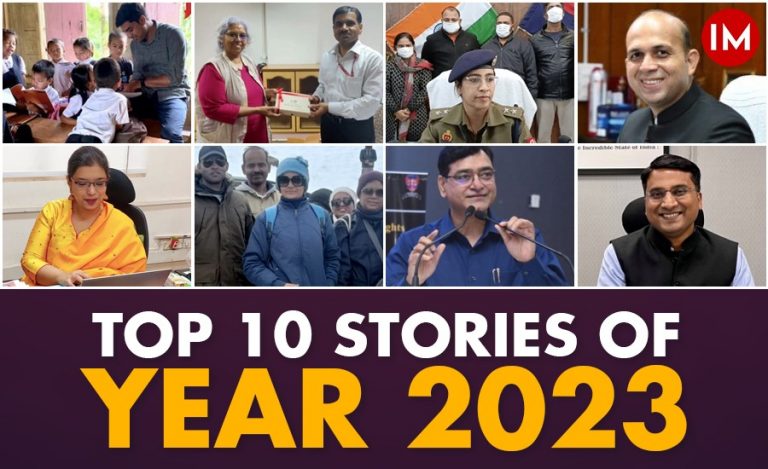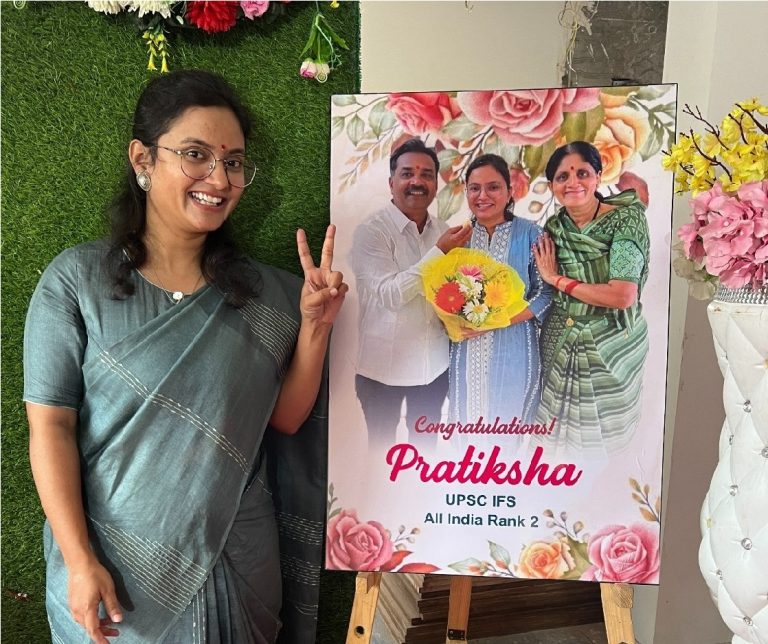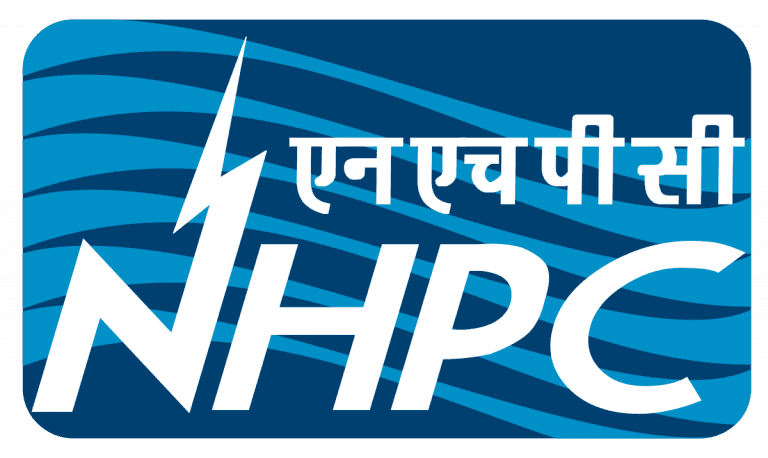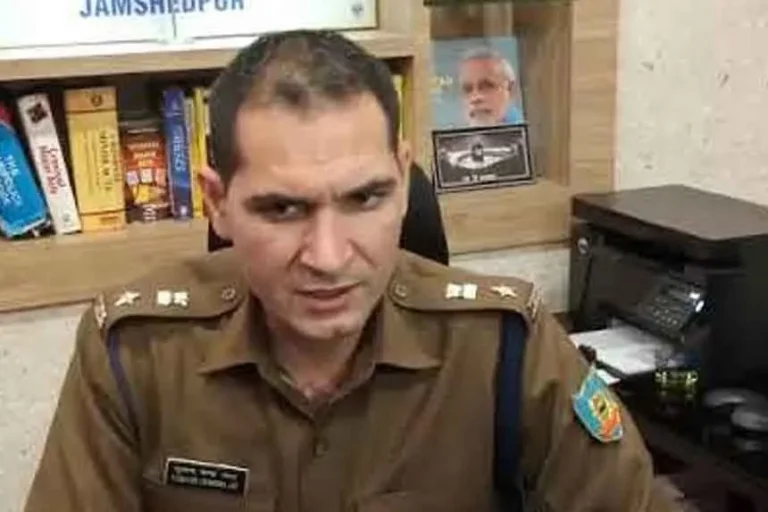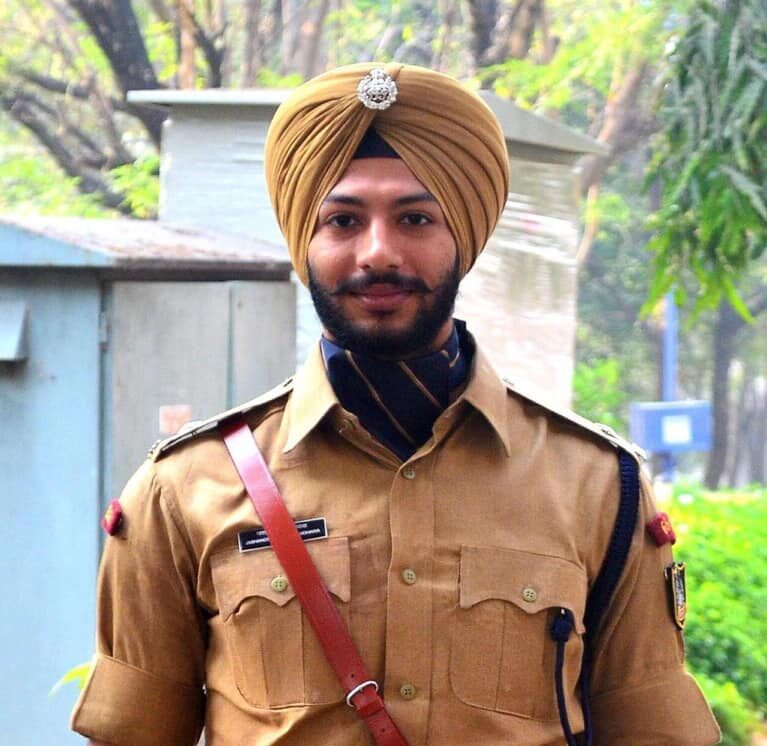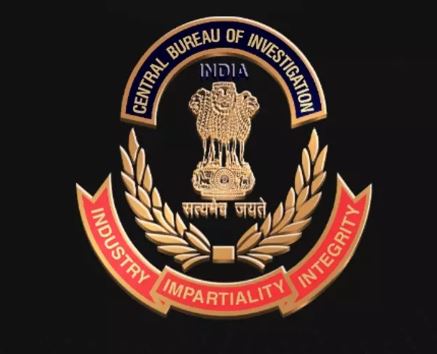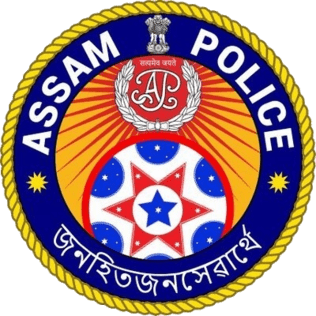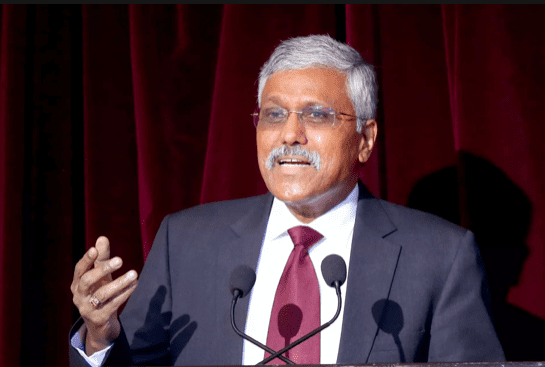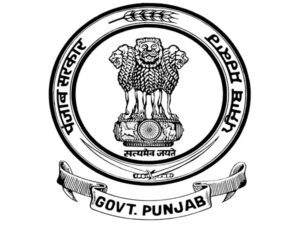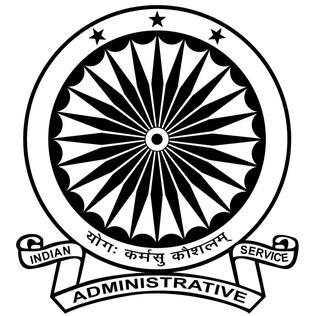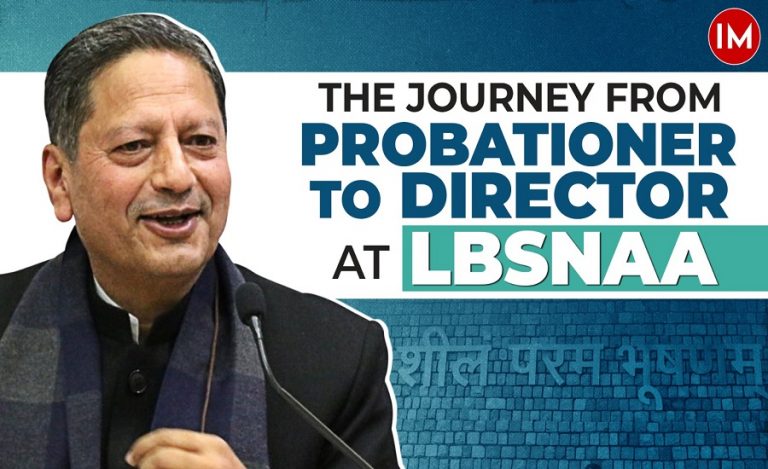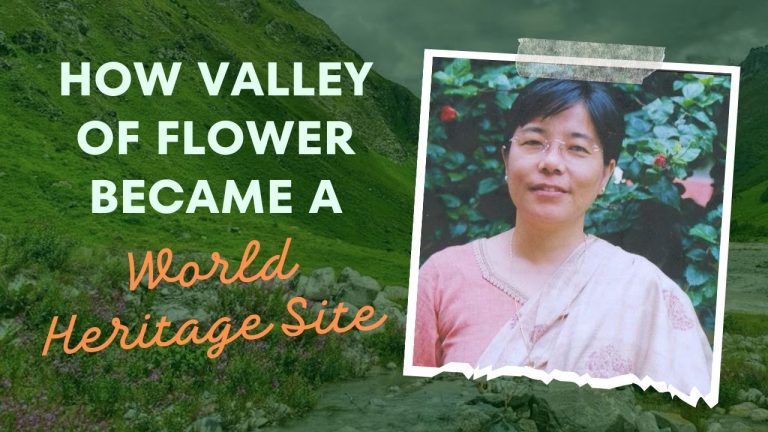We know her as the woman who became the face of the External Affairs Ministry of India in the early 2000s, but how many of us know the woman behind that face. The woman who had to struggle to get to Delhi from Aurangabad to sit for the UPSC exam. The woman who had to convince her parents to let her join Indian Foreign Service instead of their preference, Indian Administrative Service.
In Seventies India, for a woman to take a stand for herself and choose a career that can take her to faraway lands was not at all easy. But then, Ms. Nirupama Menon Rao was never a woman to want things to fall easily into her lap. She wanted only her hard work to speak for her achievements.
In the second half of an exclusive video interview to India Masterminds, the Former Foreign Secretary of India candidly talks about her UPSC and IFS journeys and how she was able to successfully complete both.
UPSC JOURNEY
Ms. Rao took the UPSC exam when she was 22 years old, just after she had completed her Masters in English Literature, in Aurangabad, a city in Maharashtra where her army officer father was posted at that time. “Those days, Aurangabad did not have a centre for writing the UPSC exam. So, I had to go to Delhi and stay with relatives for writing it,” she said.
Here is the video of the interview:
She studied on her own, her only help being a library in the city. “We didn’t have coaching classes in Aurangabad but had a beautiful library in the Marathwada University. It’s now called Babasaheb Ambedkar University. There I had access to all the materials I needed.”

She went to the UPSC headquarter in Shahjahan Road in Delhi to write her exams and scripted history. “As luck would have it, I topped the lists of both the IFS and the IAS,” she says matter-of-factly. “They were considered the top services at that time, and, in fact, IFS was premium. Very few people made it to IFS from the top of the list. I was No 1 in IFS and No 1 in IAS also.”
Her family wanted her to join IAS, as she could ask for her home cadre Kerala and live amidst her own people. But she wouldn’t hear of it. She only wanted Indian Foreign Service. “I was very fond of reading about foreign affairs and history. It was my dream to join the Foreign Service. I was fortunate to have parents who understood my aspirations and their support finally enabled me to join it.”
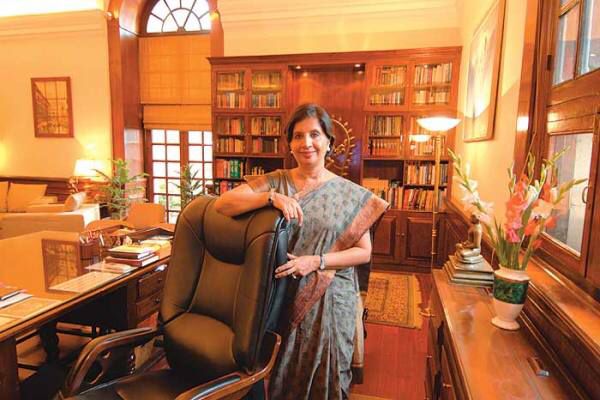
And she has never had any reason to regret that decision as “Foreign Service is a most fulfilling career as you get scope to represent the country and do good for the country. You become the voice of the country!”
IAS VS IFS
Yet, she feels that the importance of Foreign Service is not understood by the young people of the country. She cites two possible reasons why toppers of today prefer IAS over IFS. “The whole nature of the situations we are in today has changed from the Seventies when I took the UPSC exam. Today, India is globalised. Travelling to any part of the globe is so much easier. Young people do not want to explore new places because everything’s on their fingertips. In my time, that was not the case. You wanted to go to other countries to see those places because you didn’t have any ways to visualise them.”
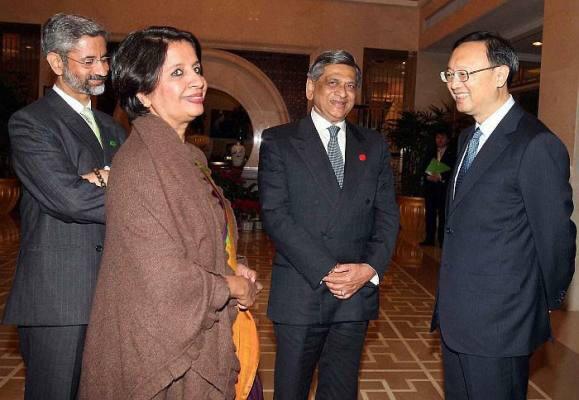
The second reason, she thinks, is that the people who take the UPSC exam today don’t come from big cities so much as they come from all over the country. “It’s become really democratized. They come from every corner of the country. And they have interacted mostly with IAS officers – like the DM and the SDM. They see them doing good for the local population. They also see the kind of power and the responsibilities they hold, and that is very attractive to a young person. They don’t know much about Foreign Service as they don’t come in touch with diplomats because we are either sitting in Delhi in the Ministry of External Affairs or in some Embassy in foreign land. So, there’s no scope for any kind of interaction and understanding.”
The remedy, according to her, lies in the Ministry of External Affairs and those in the Foreign Service propagating the idea of becoming professional diplomat much more powerfully through an information campaign. “Why the Foreign Service is an attractive service needs to be consciously propagated in a mission mode so that young people are attracted to it, and once again it becomes the top service that young people aspire to join when they take the UPSC exam.”

HUMANITIES IMPORTANT
She points out that everywhere in the world, Foreign Service officers enjoy a lot of respect and prestige as throughout history, diplomats have left their mark. Peace agreements, peace treaties have all been a result of diplomats’ hard work. But to know this, young people need to understand history better. “We get a lot of brilliant Science people, but I think grounding in the Humanities is also essential to understand historical aspects better, which would enable one to understand what diplomats do and how important they are for the country.”
CAREER SUCCESSES
She brushes it off with a laugh when asked to name a few of her major achievements. “I don’t think I should be blowing my own trumpet. That’s not why I am here. It’s for others to judge what I have done.” But the next moment, she gets serious as she reflects on her long fulfilling career, and she lists being able to help fellow human beings in need as her greatest achievement. “I consider myself blessed to have been able to serve my country through a diplomatic career. As a representative of India abroad, I was able to help people, reach out to people, and show the human face of governance to people. Other achievements pale in comparison.”
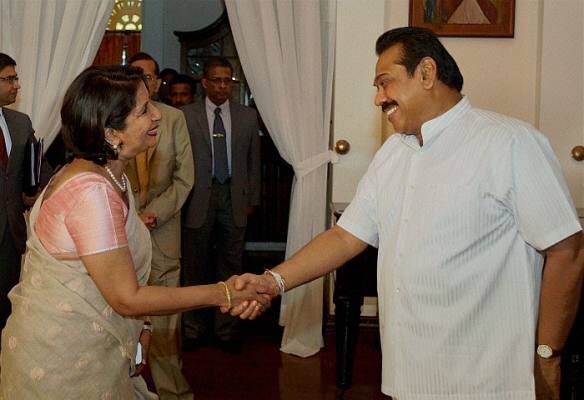
She reminisces the time when she was able to contribute to many of the agreements that were signed with China to build confidence. Also, the time when she served in Sri Lanka during the civil war. “The quantum of responsibility that is placed on your shoulder is considerable. To speak for the need for reconciliation, for respect of minority rights, for a spirit of tolerance, and for showing compassion towards those who suffered loss. To also put across, on behalf of India, what we wanted. That we wanted the country to stay united and not to break apart.”

At the same time, she feels that what’s equally important for a diplomat is what you bring back to the country in terms of knowhow, concepts, and the expertise to build bridges between countries so that India benefits from it.
“We are all citizens of the world. We cannot lock ourselves within the national frontiers. We have to look outside and learn from others.”
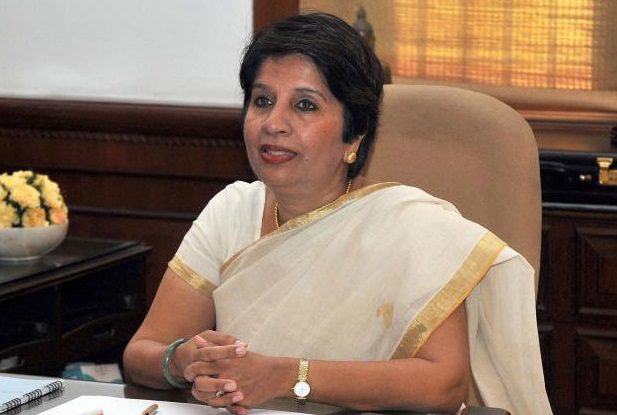
MAJOR CHALLENGES
She names a few challenges like the ethnic riots in Sri Lanka and the tsunami when she was there. Then there’s China relationship which she calls “high maintenance relationship as it requires a lot of attention.” In Peru, she missed being taken hostage by a hair’s breadth. “I left the Japanese embassy just in time before this group raided it and took people hostages.”
However, she says, there will be challenges in any part of government. “Whether you are in IAS, IPS, IFS, IRS, you will face challenges. But you are there to try and resolve them, you are there to make things better. When you are entrusted a big responsibility, it’s a divine responsibility. You can’t play God, but you must understand that you are there to do good. So, do no harm! This should be your motto.”
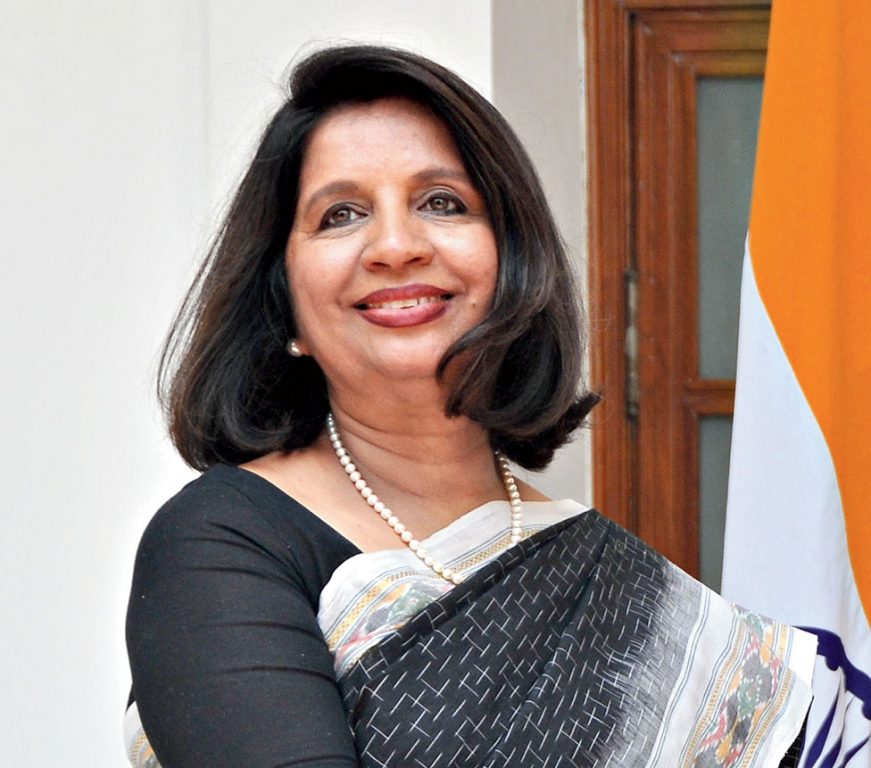
FOR YOUNG BUREAUCRATS
The former Foreign Secretary asks young bureaucrats to cultivate transparency, openness, and compassion. And, to work always to the highest standards. “You should have the ability to deliver. Instead of just speaking about plans, show through action that you can bring in change. You should be agents of change. Change that would bring progress to the country.”
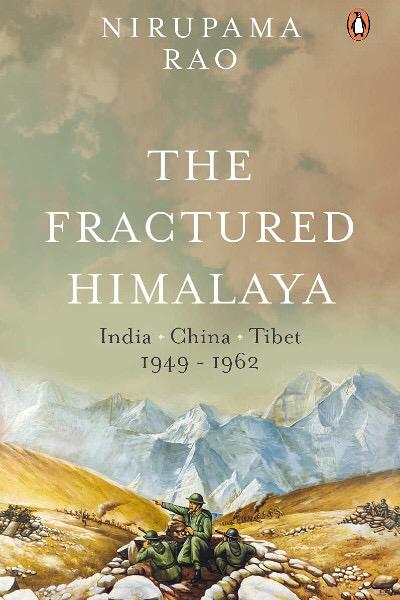
Lastly, she urges them all to read her latest book, The Fractured Himalaya, to understand India-China history because “if you understand history, it becomes easier to tackle the present and address the future.”

